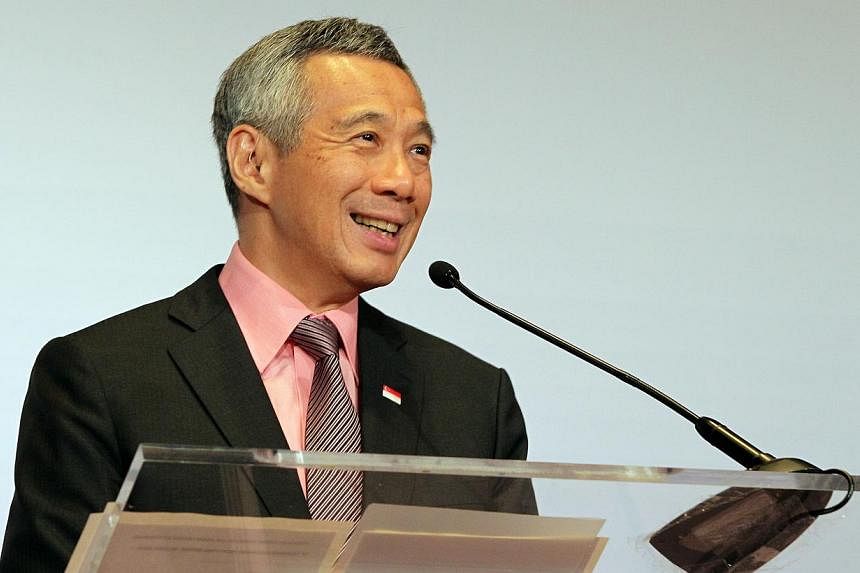SINGAPORE - The need for Singapore to be a "smart nation", using the latest technology to benefit the country, is about making life better for the people and more.
Prime Minister Lee Hsien Loong also envisions it helping the nation keep abreast of leading cities such as Shanghai, San Francisco and Sydney.
Bringing the current piecemeal uses of technology into a cohesive, nationwide whole "will make our economy more productive, our lives better, and our society more responsive to people's needs and aspirations", he said today at the launch of the Smart Nation initiative.
To achieve this new goal, Mr Lee is setting up the Smart Nation Programme Office. It will come under the Prime Minister's Office and be led by Environment and Water Resources Minister Vivian Balakrishnan, who will give more details about it next month.
Previously, individual technological efforts came under the Smart Cities Programme Office, a unit of statutory board Infocomm Development Authority (IDA).
One major initiative will be to let people access maps and build up geospatial databases by contributing information such as animal sightings, traffic incidents or the best mee pok eateries.
During his 35-minute speech, Mr Lee also used an improved app for planning bus journeys, to demonstrate how technology can make life more convenient. "If we can automate the things that are routine, then we can concentrate on the things that really matter."
Technology can also strengthen communities and aid the elderly, he said. For example, the Housing Board is piloting the use of motion sensors to detect irregular behaviours of elderly folk and send an alert to their caregivers.
Mr Lee is confident that Singapore can become a smart nation, as most people own smartphones and have broadband access.
Many are also tech-savvy, while students consistently top the world in math and science.
Some government e-services are also among the best in the world, he said.
Citing the Health Ministry's central database, which helps doctors keep track of patients' health records across hospitals, he said: "Some countries have spent tens of billions of dollars trying to build a system like this (and) some have given up."
But even as Singapore ramps up its technology drive, he assured the less technologically-savvy - like senior citizens - that they would not be left behind.
Those without computers will have access to government online services in community clubs, said Mr Lee, pledging to "prevent a digital divide from happening".
He also promised to beef up security measures, to make sure sensitive information like medical data is not stolen, and to protect against attacks from hackers.
"We already have cyber-security duties residing in the Ministry of Home Affairs, in the IDA, but I don't think they are as strong as we would like them to be," he said, adding that the Government was studying how to protect other critical sectors like telecommunications and banking.
The Government also aims to groom the next generation of technology experts by encouraging students to learn to code and by reviewing the career paths of its engineers.
In concluding, Mr Lee said: "We have what it takes to achieve this vision - the capabilities and daring to pull it all together and to make a quantum leap forward."


